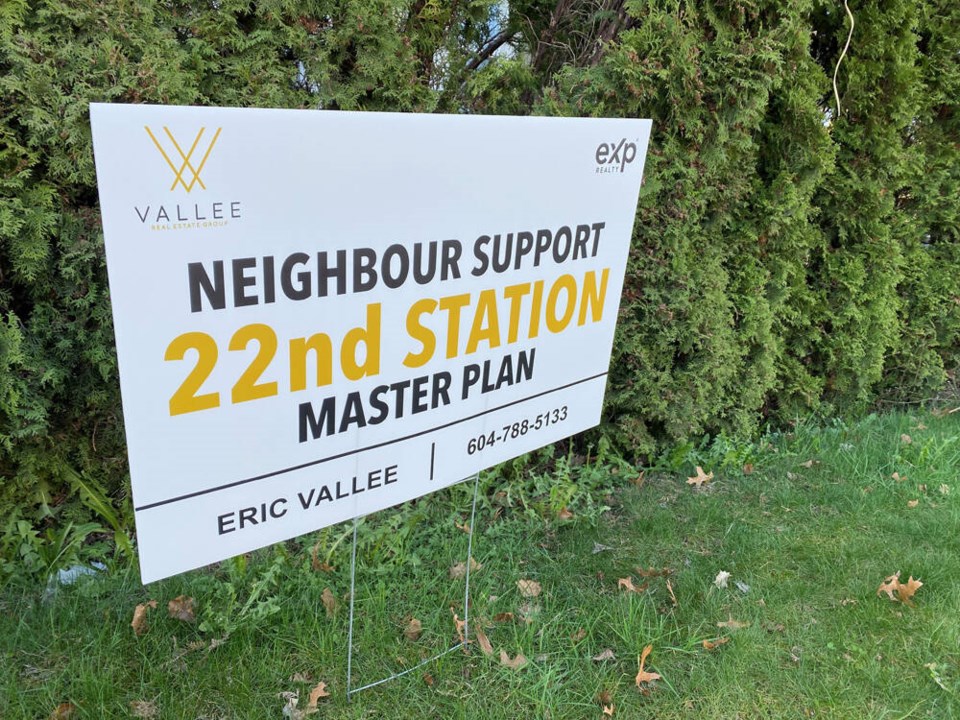Development for whom?
Tensions arose at Monday’s council meeting during an exchange between councillors Daniel Fontaine and Ruby Campbell about a townhall forum, organized by Fontaine, which took place April 25th at the Queensborough Community Centre on the topic of densification in Connaught Heights.
Campbell expressed reservations about real estate involvement in the forum, but Fontaine maintained that his forum was a legitimate form of public engagement, and that the event was neither hosted nor co-hosted by any real estate group.
I attended this forum, and I agree that it is legitimate for Fontaine — especially as council liaison to the Connaught Heights neighbourhood — to organize events to discuss densification with residents of the city.
But although Fontaine objected to the use of the term “hosted” at council (and I have little interest in a debate over semantics), the Vallee Real Estate Group was clearly involved in promoting and managing registration for the event, as my own experience shows.
I first looked for information about the forum through the city’s event page, which noted the date, time and location, but provided no instructions for advance registration.
I wanted to be sure of securing a spot to attend, so when I also saw the event advertised in the 22nd Street SkyTrain Station Master Plan Facebook group (administered by the Vallee Real Estate Group), I followed the advertisement’s instructions to register with Eric Vallée. I then received confirmation of having a spot at the forum.
At the event itself, there was a sign by the entrance advocating for moving ahead with the master plan for the area, with Vallee Real Estate Group branding on it.
Upon entering the room, I provided my name and contact information on a registration list at the door. After the meeting, I was contacted by a representative of the Vallee Real Estate group through e-mail to sign a petition asking the city to increase density around the 22nd Street SkyTrain station.
The deeper issue here, however, is not who was or was not hosting the forum, but whose interests are represented in our collective discussions about housing and development in the city.
At the forum, I appreciated hearing different points about development and housing market dynamics, and I found the vision of sustainable design, attractive streetscapes, and walkable neighbourhoods replete with amenities compelling. But it was clear that real estate and private development interests were foregrounded in the discussion, including the market-driven New Urbanist philosophy espoused by the invited panelists.
A moment of moral clarity came as the forum was nearing its end. A woman who arrived late interrupted the discussion and loudly asked the room, “You’re all rich. You own homes. Are you going to build low-income housing?”
I support densification, but the central question we need to ask is, for whom are we building these neighbourhoods? Who will get to enjoy these spaces — and who will be excluded?
For densification to be just, it must be equitable: development should include a mixture of tenure types and income levels so that neighbourhoods are livable, healthy and inclusive places for everyone.
We must therefore ensure that public engagement processes are representative of the community as a whole. This means prioritizing the perspectives of those who face the greatest housing challenges and ensuring that they play a meaningful role in shaping the development of our city, including around 22nd Street SkyTrain station.
Elliot Rossiter is a resident of New Westminster, a faculty member at Douglas College, and director of the Changing the Conversation project.
📢 SOUND OFF: How can public engagement be made as open and inclusive as possible? What ideas around the future of housing need to be considered as New Westminster develops? Share your thoughts — send us a letter.





